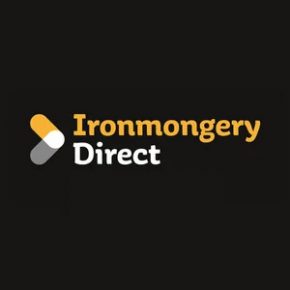
GUEST ARTICLE: Why should building product directories be a part of your content marketing plan?
Product directories are used and trusted by thousands of specifiers, clients and installers. They are widely used to access information about building products, with Buildingtalk generating 50,000 visitors every month.
Their aim and purpose is to provide specifiers, architects and consultants with comprehensive, up to date information, inspiration and the latest news on product and technology innovation.
Discover how to get the most out these valuable resources to create awareness for your brand, increase specification, improve your organic rankings on Google and generate new sales leads.
Content Is King
Creating good quality, correctly targeted content is the key to getting the most out of product directories. The buyers and specifiers journey has changed, traditionally specifiers and architects would look to magazines, printed directories or their own product library to specify product companies. Now they look to the web; like we all do with everyday queries.
Buildingtalk have more than 22,000 subscribers to their newsletter and over 8,200 followers on Twitter. These include architects, specifiers, developers, contractors, installers and other building industry professionals. Buildingtalk offer packages that let you upload an unlimited amount of content.
Typically Buildingtalk get over half a million visitors a year, creating a huge potential to get people’s eyes on your content.
Key content includes;
– Product literature
– Case studies
– Technical datasheets
– Specification clauses
– BIM objects / CAD files
– Whitepapers
– Product news and blog articles
When writing content for product directories, you need to ensure you include backlinks to your company’s website. This is also a good habit to get into when writing blogs for your own website. Not only does it help readers who want to find out more, but the links to your website from a
directory page will boost your domain authority. The average domain authority for building product websites is just 31, Buildingtalks is 40 so they’re links are worth acquiring.
Your content should be about helping people, not company news such as a new sales director.
Are Building Product Directories a Good Financial Investment?
Traditional PR colour separations cost roughly £100 minimum, depending on the space you want. Magazines are a costly way to get your content shared, and even then you can’t measure the success or reach its achieved, and you usually have to specifically ask for a backlink. Many magazines are duplicated as online versions now, including interactive links that can go straight to your website, this can have a positive impact on your DA but is a costly way of sustaining it.
Product directories can vary on price with an average range of £1,500 – £4,000 for 12 months. Buildintalk packages vary on price depending on coverage but £1,500 per annuum is the average. Product directories are a worthwhile investment if you’re going to continuously create content.
Are online building product directories worth paying for?
If you were to blog just once a week and you were paying £1,500 for your directory, each blog would be costing £30. This is less than a third of the price of a colour separation charge with a magazine. It also enhances and drives traffic to your website as your content is being seen with links back to your website.
The biggest plus of going down this route is that the content is on the internet forever. When you pay for a piece in a magazine it has a short lifespan, many magazines republish monthly. This is giving your piece of content a 4 week life span. Whereas directory content will be carried for the long term and will be linked to your profile entry, increasing the value of that page as a resource to specifiers.
Conclusion
We think using product directories as part of your building product content marketing strategy is a no brainer. They increase awareness, showcase your capabilities, have an enormous reach and are trusted and used by specifiers to help select products.
They are content hungry, and you need to think beyond just paying for a listing and forgetting about them. Do this and you’re missing a big opportunity for your brand.
If you’re reading this thinking, ‘I struggle to create new content’ then you’re missing out on a huge opportunity to get ahead of the competition and to be seen as the experts within your specific sector.
Start by committing to one blog a week to ease yourself and your team into it, you will soon see the more you blog the more traffic you get.
If you need help with creating content or don’t have the time then Insynth can create content for you. Insynth helps building product companies with content management, creating SEO, keyword rich blogs so that your website ranks on Google when people are researching within your specific sector.
Latest news

7th March 2025
ASSA ABLOY and Lorient Showcasing at the Fire Safety Event
ASSA ABLOY and Lorient are excited to announce their debut at the UK’s fastest-growing fire safety exhibition, the Fire Safety Event, taking place at the NEC, Birmingham, from 8 – 10 April 2025.
Posted in Access Control & Door Entry Systems, Architectural Ironmongery, Articles, Building Industry Events, Building Industry News, Building Products & Structures, Building Regulations & Accreditations, Building Services, Doors, Exhibitions and Conferences, Facility Management & Building Services, Health & Safety, Innovations & New Products, Posts, Restoration & Refurbishment, Retrofit & Renovation, Security and Fire Protection, Seminars
7th March 2025
Kent Company Wins Big With IronmongeryDirect’s TradeXtra Prize Draw
IronmongeryDirect, the UK’s leading online ironmongery specialist, is excited to announce the winner of its TradeXtra prize draw.
Posted in Access Control & Door Entry Systems, Architectural Ironmongery, Articles, Awards, Building Industry Events, Building Industry News, Building Products & Structures, Competitions, Doors, Innovations & New Products, Restoration & Refurbishment, Retrofit & Renovation, Security and Fire Protection, Videos
7th March 2025
Origin launches OW-70 Soho Window to revolutionise steel-look market
Origin, the UK’s leading manufacturer of premium aluminium windows and doors, has launched its groundbreaking OW-70 Soho Window.
Posted in Aluminium Products, Architectural Ironmongery, Articles, Building Industry News, Building Products & Structures, Building Systems, Doors, Glass, Glazing, Innovations & New Products, Restoration & Refurbishment, Retrofit & Renovation, Windows
6th March 2025
GEZE UK: Seeking Support at the National Fenestration Awards
GEZE UK is seeking support from industry professionals, clients and partners at the upcoming National Fenestration Awards, taking place on 25th October 2025, where the company is hoping to be shortlisted in five key categories.
Posted in Access Control & Door Entry Systems, Architectural Ironmongery, Articles, Awards, Building Industry Events, Building Industry News, Building Products & Structures, Building Services, Doors, Exhibitions and Conferences, Facility Management & Building Services, Health & Safety, Recruitment, Restoration & Refurbishment, Retrofit & Renovation, Security and Fire Protection, Windows
 Sign up:
Sign up: